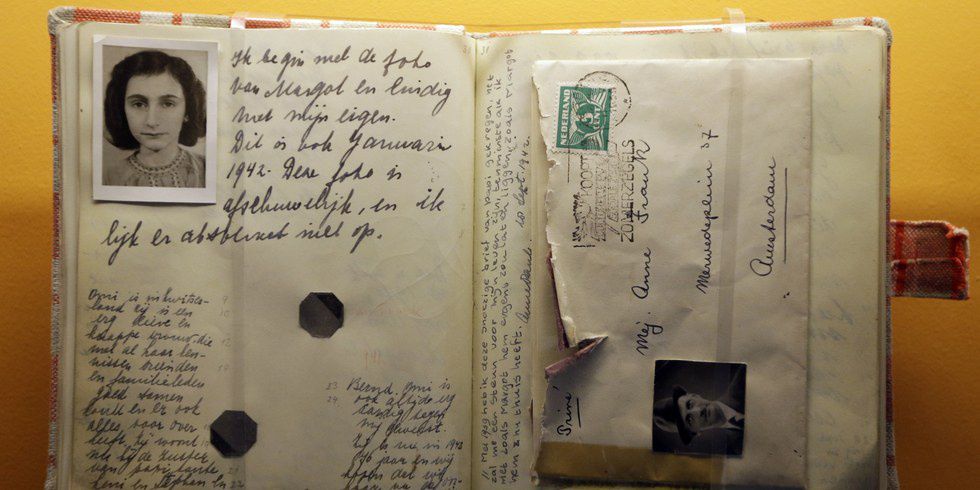"Think of all the beauty still left around you and be happy."
The best stories are ones that display the resilient strength of the human spirit. We are drawn to stories about mothers saving their children from under cars, families overcoming poverty, cancer survivors running marathons and people surviving unthinkable conditions. These stories remind us that something good can come out of horrendous positions. A perfect example of one of these stories is the story of Anne Frank.
Anne Frank was born on June 12, 1929, in Frankfurt, Germany. Her family consisted of her father, Otto; her mother, Edith; and her sister, Margot. They moved to Holland in 1933 to escape the anti-Semitism that they were facing in Germany. There, Anne attended Amsterdam's Sixth Montessori School and was a bright student. Years later, Anne received a red-checkered diary as a gift for her 13th birthday. About one month after receiving the diary, Anne, and her family went into hiding.
Imagine how you would react if your freedom was taken away from you? The entire world you once knew is condensed into a tiny annex. Your contact with the outside world is limited to daily conversations with the people who have been taking care of you. You cannot go outside for a breath of fresh air or sunlight.
You are stuck. Anne Frank channeled all of her feelings into her writing. She is most famous for her diary, but she also wrote short stories and started a novel about her experience in the annex. In her writing, Anne would write about the sadness and isolation that she was experiencing. However, she also wrote about how hopeful she is for mankind. Anne's writing reflects a mature wisdom that most people do not achieve in their lifetime.
On August 4, 1944, German police found the secret annex. The members of the secret annex were immediately sent to concentration camps. Months later, the camps were liberated. Otto looked for his family, and found out that they passed away in the camps. After asking around, Otto discovered that Anne was a positive force of energy in the camps, remaining cheerful.
While Anne did not physically survive the camps, her soul is immortalized in her diary. Anne's legacy is important because it provides insight into the lives of those in hiding during World War II. The emotional element in Anne's writing provides a learning experience that textbooks about World War II just cannot provide. Anne's writing also has a positive undertone. This reminds people that it is possible to find light even in the darkest of situations. Anne's story is one of courage and hope.


























